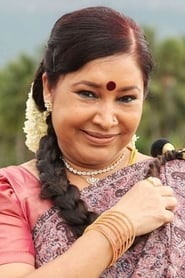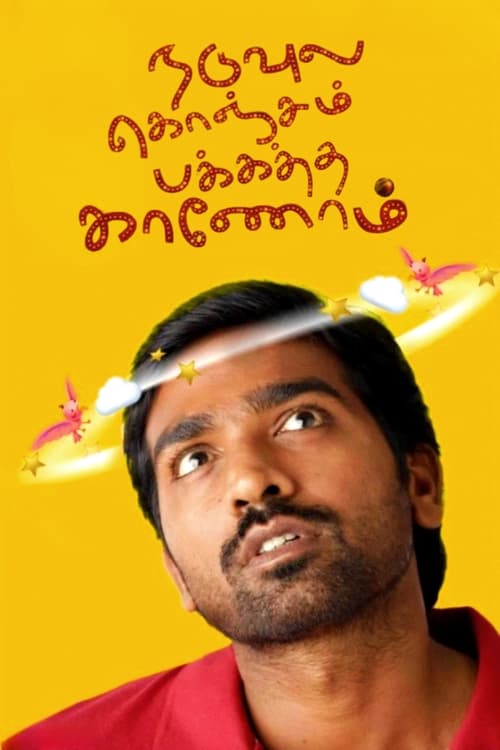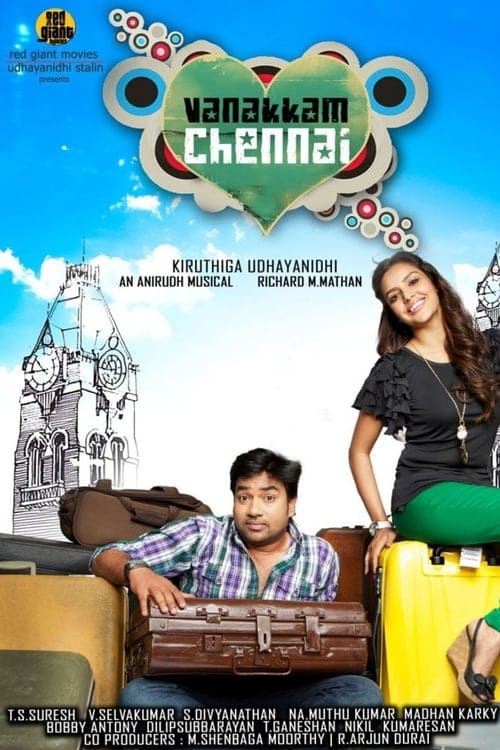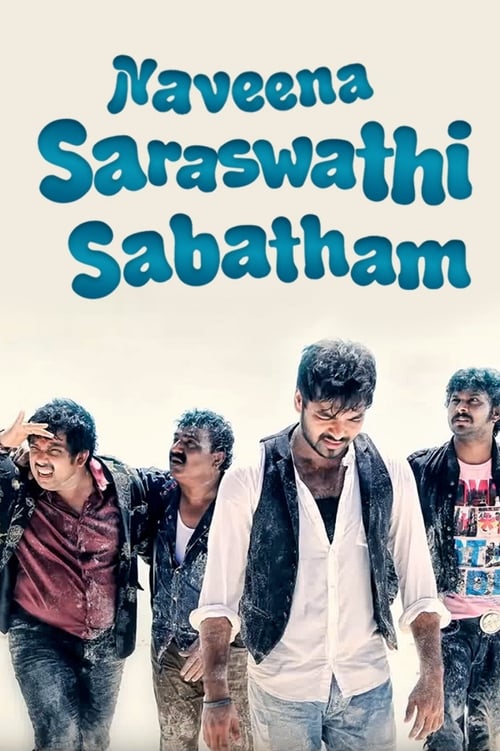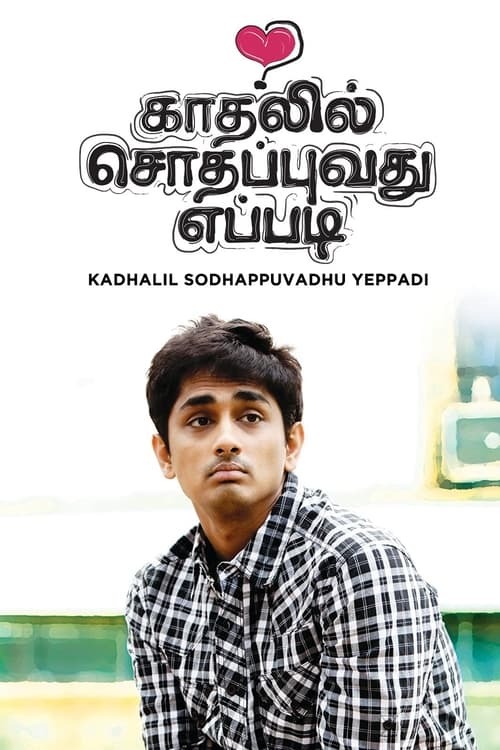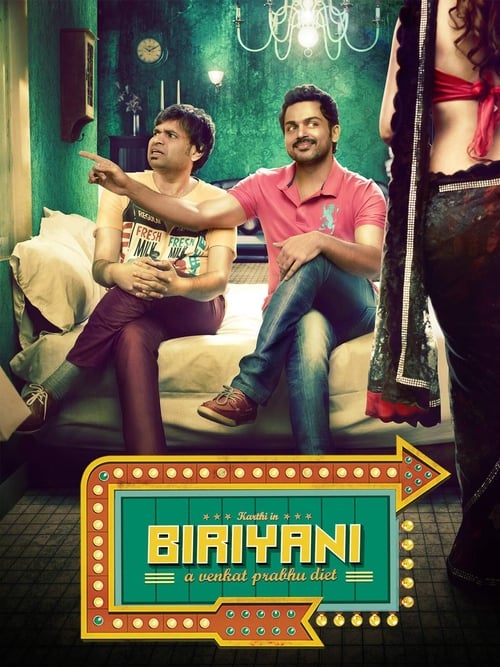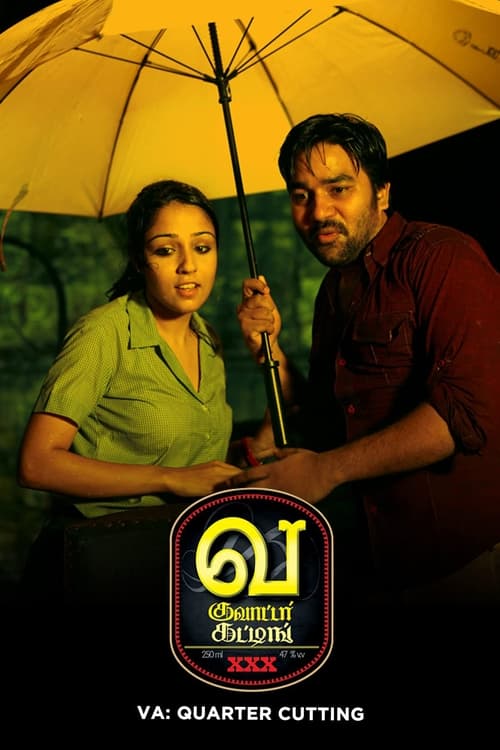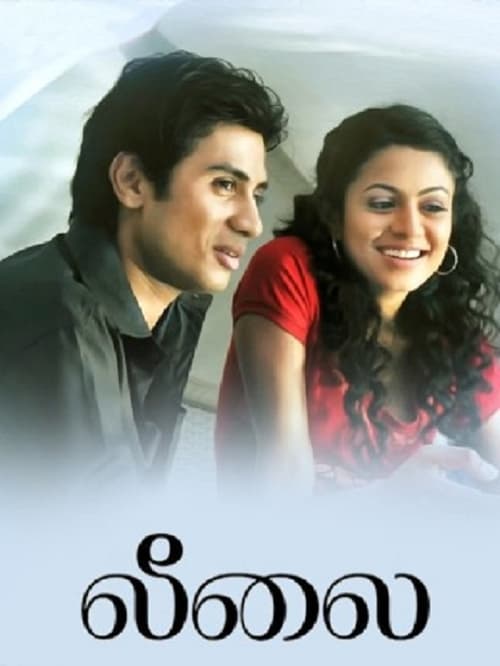No Image
Ask Your Own Question
What is the plot?
The Complete Story of Kanna Laddu Thinna Aasaiya
The film opens with a vibrant introduction to three unemployed friends living in a typical Tamil neighborhood, each embodying a distinct comedic personality that will drive the entire narrative forward. Kaalkattu Kaliyaperumal, known simply as KK and portrayed by Santhanam, is the loudest and wittiest of the trio--a man whose sharp tongue and constant barrage of one-liners make him the comedic engine of their group. Beside him stands Power Kumar, played by Srinivasan, a flamboyant and energetic character whose physical comedy and exaggerated expressions provide constant entertainment, often leading the charge in their various schemes. The third member of this unlikely trio is Shiva, portrayed by newcomer Sethu, who serves as the more reserved and genuinely kind-hearted member of the group, often helping his neighbors with household tasks and displaying a sincere nature that contrasts with his friends' more outrageous behavior.
These three friends spend their days in a haze of unemployment and mischief, frequently drinking together, cracking jokes about their lack of jobs, and chasing after girls in their neighborhood with varying degrees of success and shame. Their days are filled with purposeless wandering and comedic banter, establishing them as lovable rogues rather than truly malicious characters. The neighborhood where they live becomes the stage for everything that follows--a residential area filled with typical Tamil households, courtyards, and the kind of close-knit community where everyone knows everyone else's business.
Then everything changes when a girl named Sowmiya moves into the house directly opposite Shiva's residence with her family. She is beautiful, and her arrival sends shockwaves through the three friends' mundane existence. All three of them are immediately and completely bowled over by her presence, their eyes following her every movement as she settles into her new home. What begins as casual attraction quickly transforms into something more serious--genuine romantic interest that threatens to destroy the long-standing friendship between the three men.
Recognizing the potential disaster that could unfold if they all pursued Sowmiya without any rules or boundaries, the three friends make a gentlemen's agreement. They decide that rather than fight amongst themselves or resort to underhanded tactics, they will each attempt to woo Sowmiya through different methods, and ultimately, they will allow her to choose which one of them she prefers. It is a civilized approach to an uncivilized situation, and it demonstrates that beneath their crude exteriors, these three men do possess some sense of honor and friendship.
Each friend devises a strategy to impress both Sowmiya and her family. Shiva takes the most direct and humble approach, offering to help Sowmiya's aunt with household work, performing various chores and tasks around the house. His genuine kindness and willingness to labor without complaint make him a sympathetic figure in the family's eyes. Meanwhile, KK decides that the path to Sowmiya's heart runs through her uncle, a music vidwan--a classical music teacher--and he enrolls himself in singing classes with the man. The scenes that follow are comedic gold, as KK, who possesses absolutely no musical talent whatsoever, attempts to learn classical music while the patient but increasingly exasperated uncle tries to teach him the fundamentals of rhythm and melody. KK's complete inability to carry a tune, combined with his overconfident attitude about his own abilities, creates a running gag that generates consistent laughs.
Power Kumar, not to be outdone, decides to impress Sowmiya's father, who is a dance master specializing in Bharatanatyam, the classical Indian dance form. Power enrolls in dance classes with the father, and the results are equally disastrous and hilarious. Power's physical comedy reaches new heights as he attempts to master the intricate movements and hand gestures of Bharatanatyam, his body contorting in ways that defy both grace and coordination. The scenes of Power's torment in dance class become some of the film's most memorable moments, with the dance master growing increasingly frustrated with his student's complete lack of natural ability or rhythm.
The three friends continue their respective pursuits with varying degrees of failure and comedic mishap. They spend time at Sowmiya's house, engaging with her family, attempting to ingratiate themselves through their various learned skills. The neighborhood becomes aware of their efforts, and the three men become the subject of gossip and amusement among the locals. Their determination is admirable, even if their execution is laughably poor.
However, the turning point arrives when Sowmiya finally decides to reveal the truth to all three friends at once. One day, when none of Sowmiya's family members are home, the three friends gather their courage and each profess their love to her, laying bare their feelings and their hopes that she might choose one of them. The moment is emotionally charged, with each man expressing his affection in his own way. But Sowmiya's response shatters their dreams completely. She reveals to all three of them that she does not love any of them--instead, she is in love with actor Silambarasan, commonly known as Simbu, a famous Tamil film star. The revelation is devastating for the three friends, who have invested so much time and effort into winning her heart, only to discover that her heart belongs to someone else entirely, someone they could never compete with.
The three friends are left reeling from this rejection, but rather than accept defeat gracefully, they hatch an increasingly desperate plan. If Sowmiya loves Simbu so much, they reason, then they will simply bring Simbu to her as a gift for her birthday. It is a plan born of desperation and fueled by the kind of illogical thinking that only comes from romantic despair. They somehow manage to locate Simbu and approach him with their proposal, but Simbu flatly denies knowing Sowmiya and refuses to participate in their scheme. The actor wants nothing to do with their plan, leaving the three friends back at square one.
Undeterred by this setback, the three friends make an even more reckless decision. They decide to hire a thug named "Kolaveri" David to kidnap Simbu and bring him to them by force. "Kolaveri" David is a local criminal known for his violent tendencies and his willingness to do whatever it takes to complete a job. The three friends approach him with their offer, and David agrees to take the job, presumably for a substantial payment. However, in a twist of fate that demonstrates the chaos underlying their plan, David kidnaps Sowmiya instead of Simbu. Whether this is a case of mistaken identity, incompetence, or deliberate deception on David's part is unclear, but the result is catastrophic for everyone involved.
When the three friends discover that Sowmiya has been kidnapped by David, they are forced into action. Despite their comedic nature and their general incompetence, they rally together and decide to rescue her from the thug's clutches. Shiva, KK, and Power go to confront "Kolaveri" David, and what follows is a comedic yet action-packed sequence where the three friends manage to overcome the thug and save Sowmiya from her captor. The rescue is not particularly graceful or professional, but it is effective, and more importantly, it demonstrates that when it truly matters, the three friends are willing to put aside their own romantic interests and work together to protect someone in danger.
However, the consequences of their earlier actions come back to haunt them. During their various attempts to impress Sowmiya's family, KK and Power had engaged in physical confrontations with Sowmiya's uncle and father, beating them severely in comedic but ultimately damaging encounters. These beatings, while played for laughs in the film, have real consequences. When Sowmiya is rescued and must choose between her three suitors, she does not choose based on who loves her most or who has the best intentions. Instead, she chooses Shiva, specifically because KK and Power had beaten her uncle and father so badly. Shiva, by contrast, had only helped her aunt with household work and had never resorted to violence against her family members. His gentle approach and genuine kindness stand in stark contrast to the brutish behavior of his friends.
The film moves toward its resolution with surprising emotional depth. Shiva and Sowmiya's relationship blossoms following her choice, and the narrative builds toward their wedding. The final scenes of the film depict Shiva and Sowmiya getting married, with the three friends celebrating together. Despite the romantic competition that threatened to tear them apart, the three friends ultimately remain bonded. The wedding becomes a celebration not just of Shiva and Sowmiya's union, but of the enduring friendship between the three men.
The final moments of the film are both comedic and heartwarming. The three friends gather to celebrate Shiva's victory and his marriage to Sowmiya, and there is a sense of resolution and contentment. Santhanam's character KK delivers a particularly memorable line that encapsulates the film's themes about comedy, friendship, and acceptance. He tells Power Kumar, "Nan comedyannu enakku theriyum, aana Nee comedyannu theriyamale irukkiye"--"I know I'm a comedian, but you don't even know you're one." This line, while ostensibly a joke at Power's expense, carries deeper meaning about self-awareness and the nature of their friendship. It suggests that despite their flaws and their failures, these three men understand themselves and each other, and that understanding is what allows them to survive the romantic turmoil that nearly destroyed them.
The film concludes with the three friends together, their bond intact despite the romantic complications that threatened to tear them apart. Shiva has won Sowmiya's heart through his genuine kindness and his refusal to resort to violence against her family. KK and Power, despite their failure in the romantic competition, have not lost their friendship with Shiva. Instead, they celebrate his happiness, demonstrating that their bond transcends romantic rivalry. The neighborhood that served as the backdrop for their comedic antics and romantic pursuits remains unchanged, but the three men who inhabit it have been transformed by their experiences.
The story of Kanna Laddu Thinna Aasaiya is ultimately a tale about friendship, loyalty, and the realization that sometimes the greatest victories come not from winning romantic competitions, but from maintaining the bonds that truly matter. The three unemployed friends who began the film chasing girls and drinking without purpose end it as men who have learned something about themselves and about what really matters in life. Their journey is filled with laughter, humiliation, and ultimately, a kind of wisdom that comes only through experience and failure. The film's title, "My dear, would you like to eat a laddu?"--a seemingly simple and sweet phrase--becomes a metaphor for the friends' attempts to offer their affection and devotion to Sowmiya, even though she ultimately chooses someone else. Yet in choosing Shiva, Sowmiya validates the very qualities that made him different from his friends: his genuine kindness, his willingness to help without expectation of reward, and his refusal to resort to violence or deception to win her heart. The resolution suggests that in matters of the heart, authenticity and kindness ultimately triumph over schemes and desperation, and that true friendship can survive even the most intense romantic competition.
What is the ending?
In the ending of "Kanna Laddu Thinna Aasaiya," the three main characters, Shanmugam, Karthik, and Vasu, find themselves in a comedic yet chaotic situation as they compete for the affection of the same woman, the beautiful and charming girl named Kalyani. Ultimately, Kalyani chooses Karthik, leading to a humorous resolution where the other two characters come to terms with their feelings and the situation.
Now, let's delve into the ending in a more detailed narrative fashion:
As the climax of the film approaches, the three friends--Shanmugam, Karthik, and Vasu--are in a frenzy over their love for Kalyani. The tension is palpable as they each devise plans to win her heart, leading to a series of comedic misunderstandings and mishaps. The trio's friendship is tested as they navigate their feelings, with each character showcasing their unique personalities and motivations.
In the final scenes, Kalyani is seen at a local festival, surrounded by vibrant decorations and the sounds of celebration. The atmosphere is lively, filled with laughter and music, but the tension among the three friends is evident. Shanmugam, the more impulsive and loud character, tries to impress Kalyani with grand gestures, but they often backfire, leading to humorous situations that leave the audience laughing.
Karthik, the more romantic and sensitive of the three, takes a different approach. He tries to connect with Kalyani on a deeper level, sharing moments that highlight their compatibility. His sincerity begins to resonate with her, and the audience can see a spark of interest in Kalyani's eyes as she responds to his charm.
Vasu, the quiet and somewhat awkward friend, also makes his attempts to win Kalyani's affection. His efforts are endearing but often clumsy, adding to the comedic tone of the film. The three friends find themselves in a series of slapstick scenarios, each trying to outdo the other, which culminates in a chaotic yet entertaining sequence at the festival.
As the festival progresses, Kalyani is faced with a decision. The three friends gather around her, each expressing their feelings in their own unique ways. The scene is filled with tension as Kalyani weighs her options, and the audience can feel the emotional stakes rising.
In a moment of clarity, Kalyani ultimately chooses Karthik. The decision is met with a mix of disappointment and acceptance from Shanmugam and Vasu. They realize that their friendship is more important than their rivalry for Kalyani's affection. The scene shifts to a light-hearted resolution where the three friends come together, acknowledging their bond and the humorous journey they have shared.
The film concludes with a celebratory atmosphere, as Karthik and Kalyani share a sweet moment, while Shanmugam and Vasu, though initially disheartened, find solace in their friendship. They engage in playful banter, showcasing their camaraderie and the lessons learned throughout their comedic escapades.
In the end, Shanmugam and Vasu accept Kalyani's choice, and the three friends reaffirm their bond, leaving the audience with a sense of joy and laughter. The film closes on a high note, emphasizing the importance of friendship, love, and the humorous twists of life.
Is there a post-credit scene?
In the movie "Kanna Laddu Thinna Aasaiya," there is indeed a post-credit scene that adds a humorous twist to the film's conclusion. After the main credits roll, the scene features the character of Kanna, played by the actor Santhanam, who is seen in a comical situation. He is attempting to impress a woman, showcasing his usual over-the-top antics and charm.
As he tries to woo her, his efforts are met with a series of humorous failures, highlighting his clumsy yet endearing nature. The scene encapsulates the film's comedic tone and leaves the audience with a light-hearted feeling, reinforcing the film's themes of love and the lengths one will go to for romance. This playful moment serves as a fitting capstone to the film, reminding viewers of the comedic journey they have just experienced.
Who are the main characters in Kanna Laddu Thinna Aasaiya?
The main characters in 'Kanna Laddu Thinna Aasaiya' are three friends: Kanna (played by Sethu), who is a carefree and fun-loving man; his friend, a wealthy businessman named Karthik (played by Vishakha Singh), who is also in love with the same woman; and the third friend, a local goon named Kannan (played by Santhanam), who provides comic relief and support to Kanna in his romantic pursuits.
What motivates Kanna to pursue the love interest in the film?
Kanna is motivated by his infatuation with the beautiful girl, who is the daughter of a strict father. His desire to win her heart drives him to take various comedic and sometimes desperate measures, showcasing his determination and the lengths he is willing to go for love.
How does the character of Karthik complicate Kanna's pursuit of love?
Karthik complicates Kanna's pursuit by also vying for the affection of the same woman. His wealth and charm create a rivalry between the two friends, leading to humorous situations as they try to outdo each other in winning her over, which adds tension and comedic conflict to the story.
What role does the character of Santhanam play in the film?
Santhanam plays the role of Kannan, who is Kanna's loyal friend and comic sidekick. His character provides comic relief throughout the film, often getting involved in Kanna's schemes and offering humorous advice, while also showcasing a more serious side when it comes to friendship and loyalty.
What are some of the comedic situations that arise from Kanna's attempts to woo the girl?
Kanna's attempts to woo the girl lead to several comedic situations, such as misunderstandings, slapstick moments, and elaborate plans that go awry. For instance, he might disguise himself or create elaborate scenarios to impress her, only to have them backfire in humorous ways, highlighting his clumsiness and the absurdity of love.
Is this family friendly?
"Kanna Laddu Thinna Aasaiya," released in 2013, is a Tamil comedy film that features themes of romance and rivalry. While it is primarily a light-hearted film, there are several aspects that may be considered objectionable or upsetting for children or sensitive viewers:
-
Mature Themes: The film includes romantic pursuits and relationships that may not be suitable for younger audiences, as they explore adult themes of love and attraction.
-
Suggestive Humor: There are instances of double entendres and suggestive jokes that may not be appropriate for children, relying on innuendo for comedic effect.
-
Physical Comedy: Some scenes involve slapstick humor that may be perceived as excessive or violent, which could be unsettling for sensitive viewers.
-
Cultural References: Certain cultural nuances and societal norms depicted in the film may be confusing or inappropriate for younger audiences, as they reflect adult perspectives on relationships.
-
Language: The dialogue includes some coarse language and slang that may not be suitable for children.
Overall, while the film is intended to be comedic and entertaining, parents may want to consider these elements when determining its suitability for younger viewers.








